Open Letter to the High Prosecutorial Council Regarding the Appointment of the War Crimes Prosecutor

 Dear Members of the High Prosecutorial Council,
Dear Members of the High Prosecutorial Council,
We are writing to you regarding the appointment of the Chief War Crimes Prosecutor, considering your responsibility to appoint a person with professional integrity to this critical position, whose leadership will enhance the work of the Public Prosecutor’s Office for the War Crimes (OWCP) and contribute to the more efficient prosecution of war crimes. Given that more than thirty years have passed since the beginning of the armed conflicts in the former Yugoslavia, the upcoming mandate of the Chief Prosecutor is of exceptional importance, as there is less and less time to bring those responsible for crimes to justice.
In this context, we express concern that Ms. Snežana Stanojković is again among the candidates for this position despite the serious shortcomings and erosion of the OWCP’s credibility during her previous term.








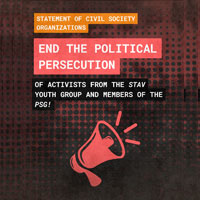 On Friday, March 14, activist and student Lazar Dinić was arrested in Belgrade, while in Novi Sad, members of the Free Citizens Movement (PSG) were detained: Lado Jovović, Marija Vasić, Davor Stefanović, Srđan Đurić, and Mladen Cvijetić. On March 16, the Higher Court in Novi Sad ordered a 30-day detention for these six individuals, and today, searches were carried out at the apartments of activists who are currently out of the country.
On Friday, March 14, activist and student Lazar Dinić was arrested in Belgrade, while in Novi Sad, members of the Free Citizens Movement (PSG) were detained: Lado Jovović, Marija Vasić, Davor Stefanović, Srđan Đurić, and Mladen Cvijetić. On March 16, the Higher Court in Novi Sad ordered a 30-day detention for these six individuals, and today, searches were carried out at the apartments of activists who are currently out of the country.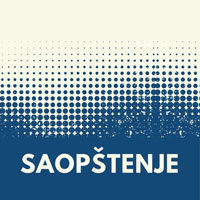
 On February 28, 2025, the War Crimes Department of the Higher Court in Belgrade delivered a judgement finding Tefik Mustafa guilty of the criminal offense of organizing and inciting to commit genocide and war crimes. He was sentenced to one year in prison.
On February 28, 2025, the War Crimes Department of the Higher Court in Belgrade delivered a judgement finding Tefik Mustafa guilty of the criminal offense of organizing and inciting to commit genocide and war crimes. He was sentenced to one year in prison.
 On February 25, 2025, the Humanitarian Law Center (HLC) filed a criminal complaint with the Public Prosecutor’s Office for War Crimes of the Republic of Serbia against Milorad Vukašević, Commander of the First Partisan Infantry Brigade of the Army of the Republic of Srpska (VRS), and other members of this unit for killings of 34 Bosniak civilians in June 1992 in Jezero (Jajce municipality, Bosnia and Herzegovina).
On February 25, 2025, the Humanitarian Law Center (HLC) filed a criminal complaint with the Public Prosecutor’s Office for War Crimes of the Republic of Serbia against Milorad Vukašević, Commander of the First Partisan Infantry Brigade of the Army of the Republic of Srpska (VRS), and other members of this unit for killings of 34 Bosniak civilians in June 1992 in Jezero (Jajce municipality, Bosnia and Herzegovina).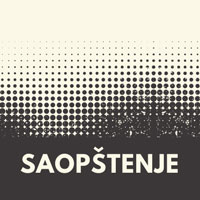
 The Humanitarian Law Center filed a request for action on the war crimes criminal complaint against Ratko Adžić, who attacked students during a blockade in Belgrade:
The Humanitarian Law Center filed a request for action on the war crimes criminal complaint against Ratko Adžić, who attacked students during a blockade in Belgrade: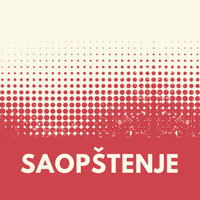
 On 16 December 2024, the War Crimes Department of the Higher Court in Belgrade delivered a judgment finding Jovo Jandrić and Slobodan Pekez guilty of the murder of 23 civilians, including 4 minors and 10 women, residents of the villages Čerkazovići and Ljoljići (Jajce Municipality), which constitutes a war crime against the civilian population. Jovo Jandrić was sentenced to 13 years imprisonment, while Slobodan Pekez received a 10-year prison sentence.
On 16 December 2024, the War Crimes Department of the Higher Court in Belgrade delivered a judgment finding Jovo Jandrić and Slobodan Pekez guilty of the murder of 23 civilians, including 4 minors and 10 women, residents of the villages Čerkazovići and Ljoljići (Jajce Municipality), which constitutes a war crime against the civilian population. Jovo Jandrić was sentenced to 13 years imprisonment, while Slobodan Pekez received a 10-year prison sentence.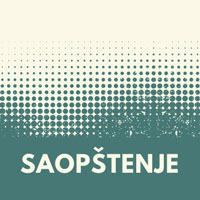
 On 12 December 2024, the War Crimes Department of the Higher Court in Belgrade delivered a judgment finding Lazar Mutlak, a member of the “Podkamen” Company of the Territorial Defence Srpsko Goražde, guilty of committing a war crime against the civilian population – raping a Bosniak woman under the threat of a gun on 25 May 1992, in the village of Lozje (municipality of Goražde, Bosnia and Herzegovina). Mutlak was sentenced to seven years of imprisonment.
On 12 December 2024, the War Crimes Department of the Higher Court in Belgrade delivered a judgment finding Lazar Mutlak, a member of the “Podkamen” Company of the Territorial Defence Srpsko Goražde, guilty of committing a war crime against the civilian population – raping a Bosniak woman under the threat of a gun on 25 May 1992, in the village of Lozje (municipality of Goražde, Bosnia and Herzegovina). Mutlak was sentenced to seven years of imprisonment.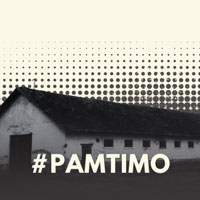
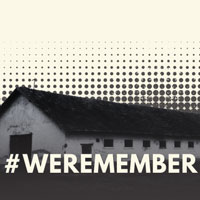 Between September 1991 and August 1992, several camps and transit centers existed on the territory of Serbia for captured fighters and civilians from Croatia. In these facilities, detainees were subjected to daily psychological and physical abuse.
Between September 1991 and August 1992, several camps and transit centers existed on the territory of Serbia for captured fighters and civilians from Croatia. In these facilities, detainees were subjected to daily psychological and physical abuse.
 This Wednesday, November 20, 2024, the Humanitarian Law Center (HLC) commemorates the victims of the crime committed at the Ovčara farm near Vukovar. On this day 33 years ago, members of the local Territorial Defense (TO) and Serbian volunteers under the command of the Yugoslav People’s Army (JNA) killed 265 Croatian civilians and prisoners of war.
This Wednesday, November 20, 2024, the Humanitarian Law Center (HLC) commemorates the victims of the crime committed at the Ovčara farm near Vukovar. On this day 33 years ago, members of the local Territorial Defense (TO) and Serbian volunteers under the command of the Yugoslav People’s Army (JNA) killed 265 Croatian civilians and prisoners of war.